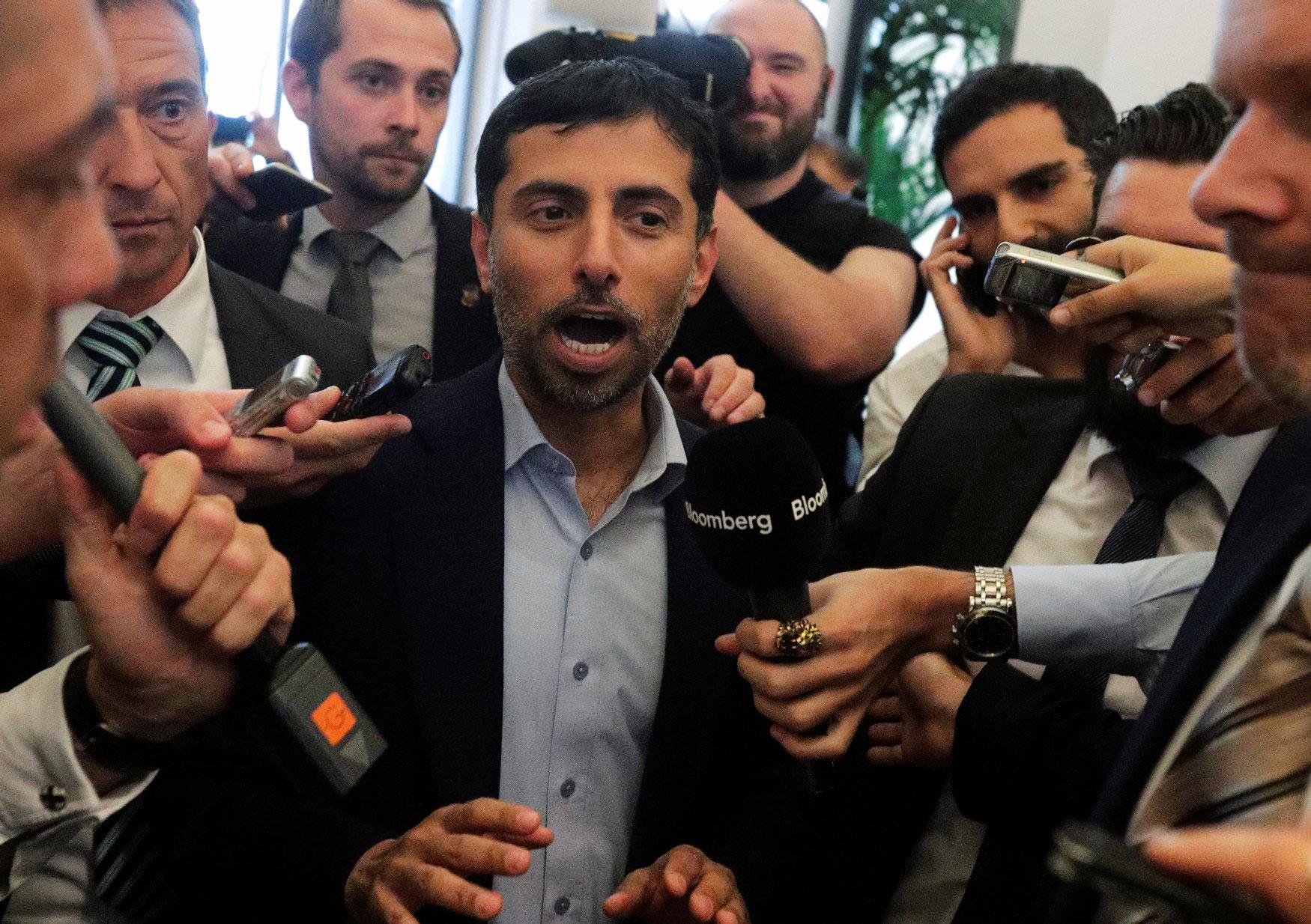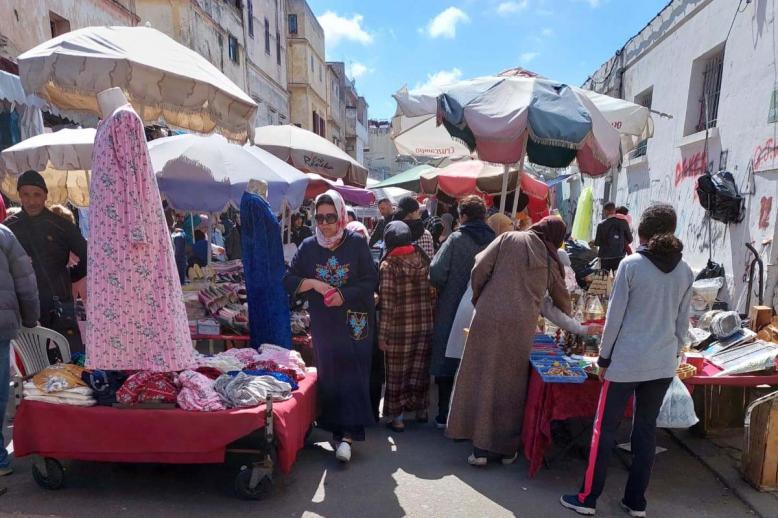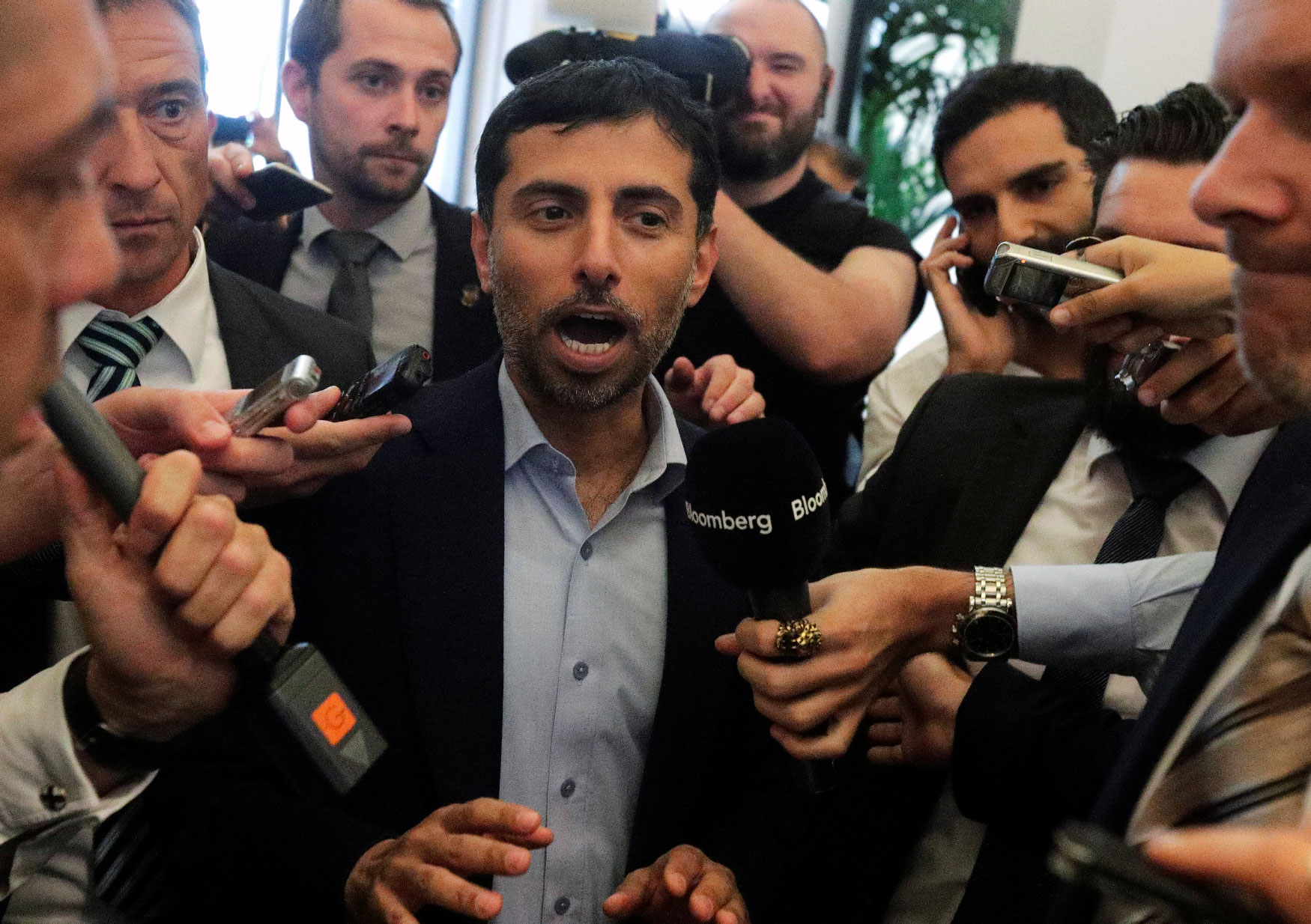Saudi looks for Gulf support ahead of OPEC meeting
VIENNA - Saudi Arabia is struggling to convince fellow OPEC members including Gulf allies on the need to raise oil output, sources familiar with the talks said on Wednesday, adding to complications ahead of an OPEC meeting this week.
The Organization of the Petroleum Exporting Countries meets on Friday to decide on output policy amid calls from major consumers such as the United States and China to cool down oil prices and support the global economy by producing more crude.
Iran said on Tuesday OPEC was unlikely to reach a deal, setting the stage for a clash with Saudi Arabia and Russia, which are pushing to raise production steeply from July to meet growing global demand.
Adding to the complications is a lack of compromise among usually aligned Gulf oil producers ahead of the Friday meeting, according to two sources familiar with the talks.
Traditional Saudi allies - the United Arab Emirates, Kuwait, Oman and Bahrain - believe Saudi Arabia was too quick to respond to U.S. calls for higher production, and have been rattled by Riyadh's close coordination with non-OPEC Russia, sources said.
There are different views on how much to increase production and whether such a move should be gradual, one source said following a meeting of Gulf oil ministers on Tuesday evening.
Russia has proposed OPEC and non-OPEC raise output by 1.5 million barrels per day (bpd), effectively wiping out existing production cuts of 1.8 million bpd that have helped rebalance the market in the past 18 months and lifted oil to $75 per barrel. Oil was trading as low as $27 in 2016.
OPEC members Iran, Iraq, Venezuela and Algeria have opposed a relaxation of production cuts, fearing a slump in prices.
But OPEC could still agree a last-minute deal on Friday by compromising on a lower output increase below 1 million bpd, OPEC sources have said.
Convincing Iran
Saudi Arabia insisted Wednesday it would do "whatever is needed" to avoid oil supply shortages, setting the stage for a showdown with archfoe Iran ahead of crunch OPEC talks on easing a production-cut pact.
"We will do whatever is needed to maintain market stability and ensure that there are no oil supply shortages," Saudi Prince and minister of state for energy affairs Abdulaziz bin Salman said at a petroleum conference in Vienna.
"Many consumer countries are anxious" about potential oil shortfalls, he said, noting that global oil demand is expected to climb in the coming months.
But Riyadh, under pressure from Washington to boost output in order to bring down prices, is encountering stiff opposition from Tehran, which is facing renewed sanctions following Washington's exit from the international nuclear agreement.
Speaking at the same event, Iranian Oil Minister Bijan Namdar Zanganeh reiterated his country's resistance to hiking oil output and accused Trump of trying to politicise OPEC.
"The real responsibility for the current oil price hike lies with the US president himself," Zanganeh told the audience. "You cannot have your cake and eat it too."
Trump has in recent months repeatedly blamed OPEC for a spike in oil prices, but Zanganeh said it was US sanctions on Iran and Venezuela that had fuelled fears of a supply crunch and put pressure on prices.
"You cannot impose unilateral trade sanctions against two founding members of OPEC, two major oil producers... and at the same time expect the global oil market not to show tensions," he said.
Zanganeh said he would leave Vienna on Friday even before OPEC holds talks with non-OPEC producers the next day, but efforts were underway on Wednesday to convince Iran to participate in a deal.
Zanganeh was due to attend a ministerial committee on Thursday, two sources said. Iran is usually not part of the committee, which includes Russia, Saudi Arabia, the UAE, Oman, Kuwait, Algeria and Venezuela.
Sources said Saudi Arabia did not want to be seen as putting too much pressure on Iran and hence Russia could instead try to convince Tehran.
Iraqi Oil Minister Jabar al-Luaibi said on Wednesday he hoped there would be agreement when OPEC meets but added: "The oil market has not reached the level of stabilisation."
The gathering is expected to be the most politically charged in years, but OPEC secretary general Mohammad Barkindo said he was confident a compromise could be reached.
"Despite the rising political tensions, as well as the tensions on the international trade side, we will be able to navigate this stormy weather," he told reporters.






